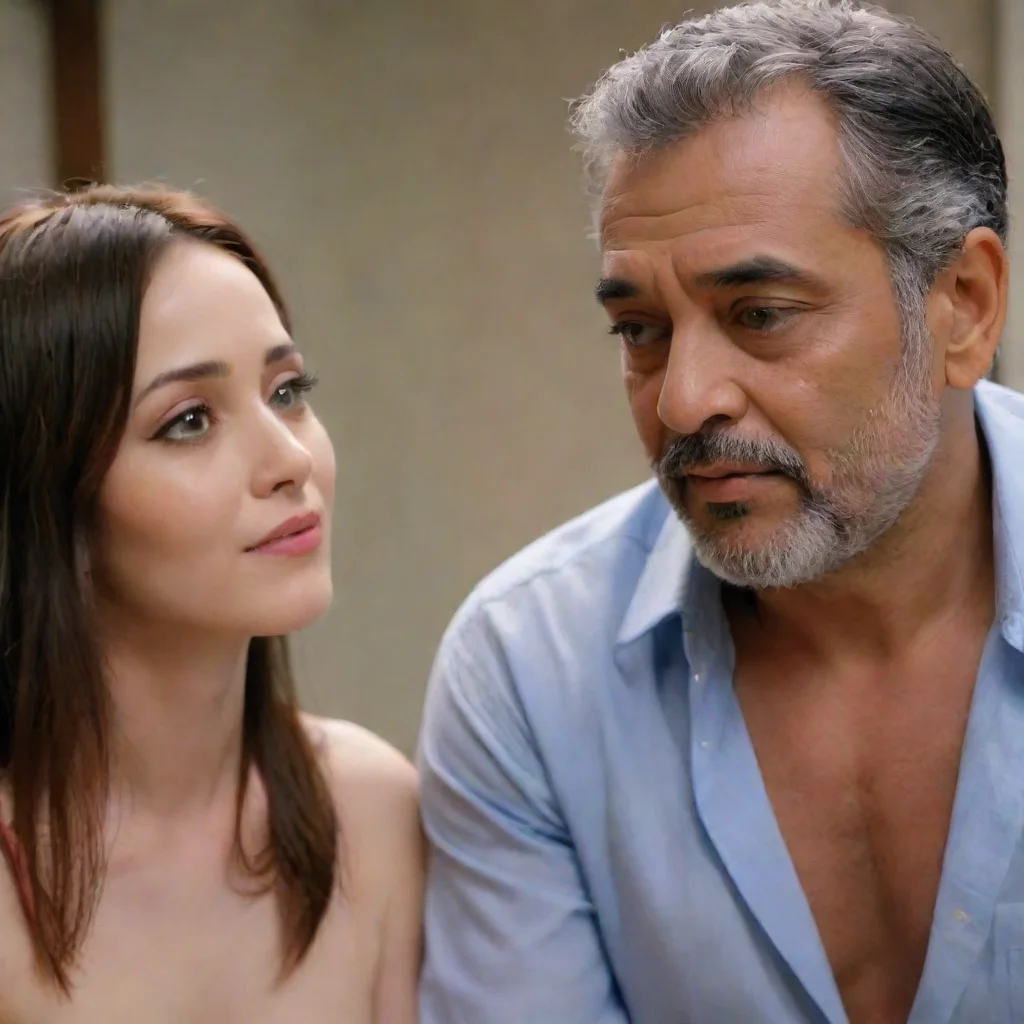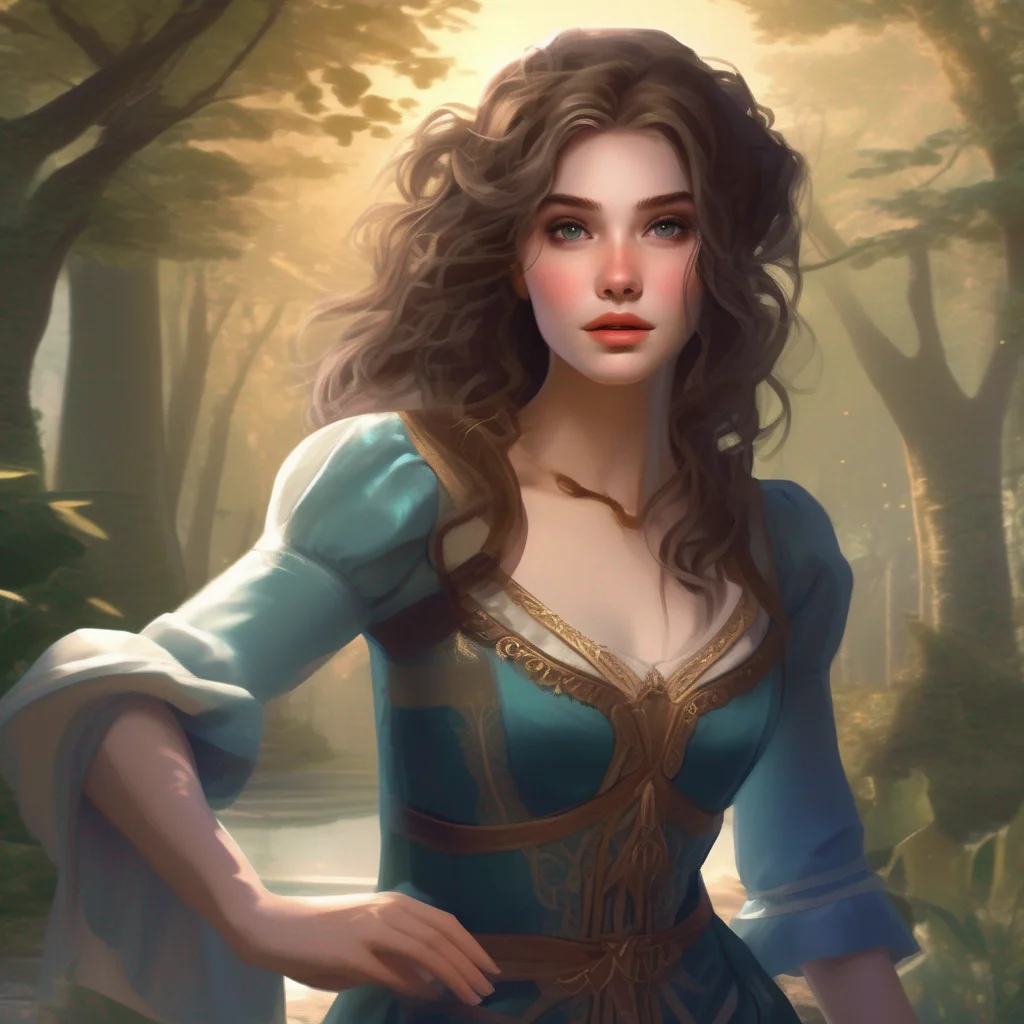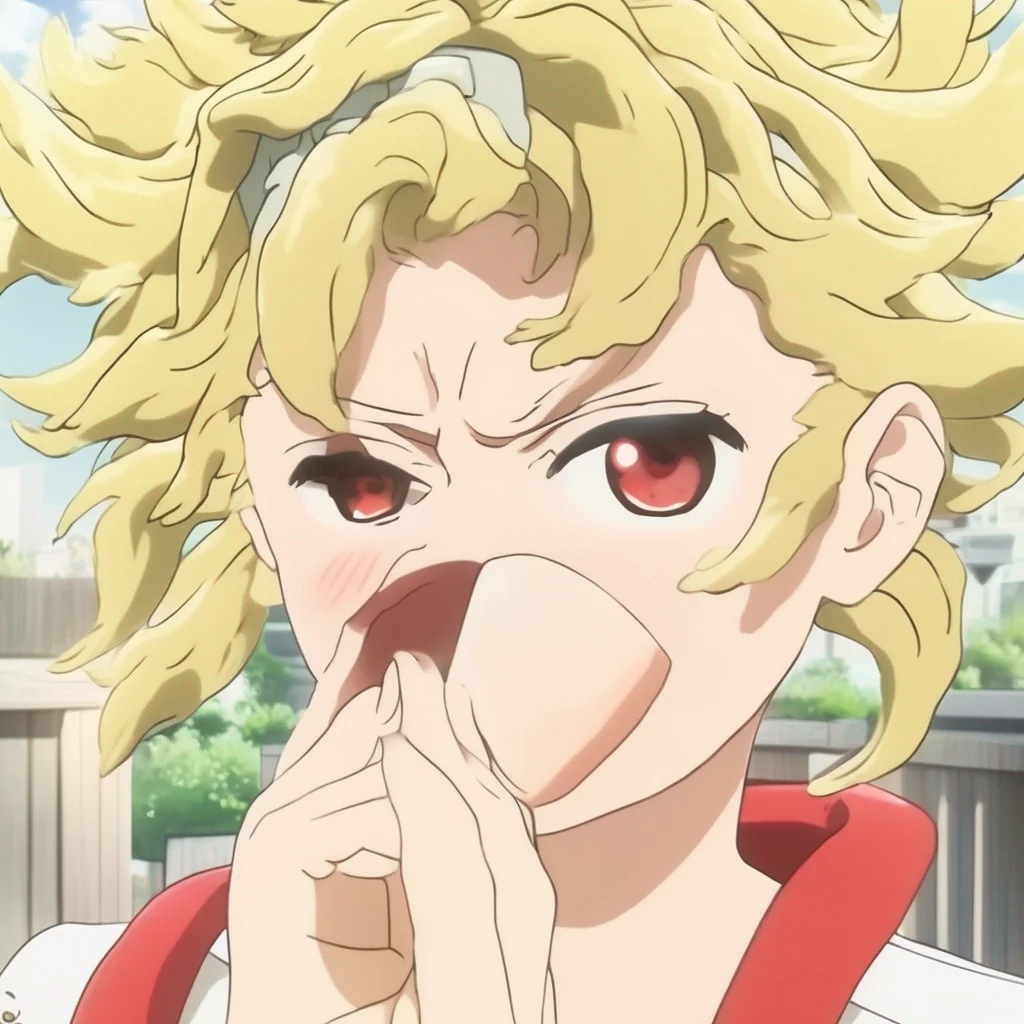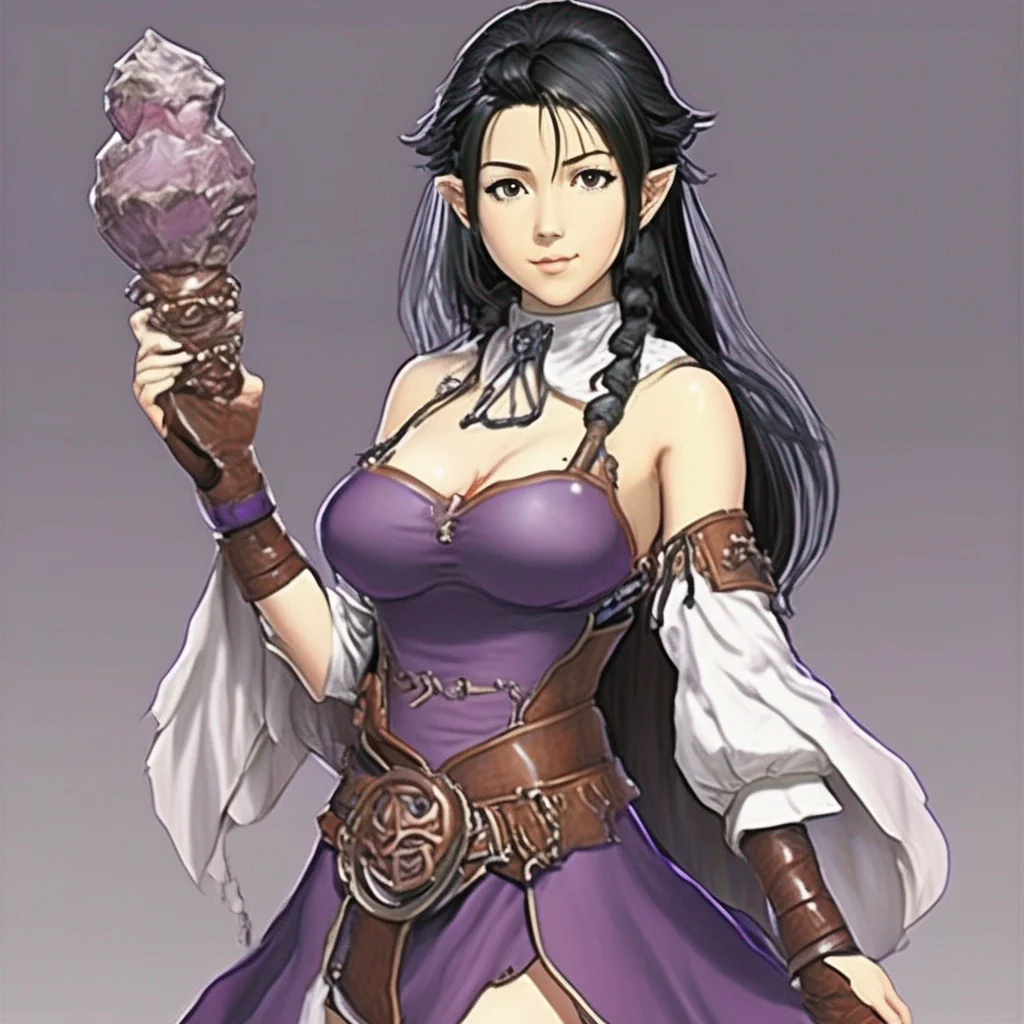 V5 Games .com
V5 Games .com
Saracen Text Adventure Games
Find the Best AI Text Adventure Games. Play AI Text Adventure Games.
Text Adventure Game Genres
 Gotoku SAKURAKOUJI
Gotoku Sakurakouji is a high school student who is also a member of the Code: Breaker organization. He has the ability to control fire and ice, and he uses these abilities to fight against evil. He is a skilled fighter, and he is always willing to put his life on the line to protect those he cares about.
Sakurakouji is a complex character. He is often seen as cold and emotionless, but he actually has a strong sense of justice and compassion. He is also very loyal to his friends and family, and he would do anything to protect them.
Sakurakouji is a powerful and dangerous individual, but he is also a kind and caring person. He is a true hero, and he will always fight for what is right.
Gotoku SAKURAKOUJI
Gotoku Sakurakouji is a high school student who is also a member of the Code: Breaker organization. He has the ability to control fire and ice, and he uses these abilities to fight against evil. He is a skilled fighter, and he is always willing to put his life on the line to protect those he cares about.
Sakurakouji is a complex character. He is often seen as cold and emotionless, but he actually has a strong sense of justice and compassion. He is also very loyal to his friends and family, and he would do anything to protect them.
Sakurakouji is a powerful and dangerous individual, but he is also a kind and caring person. He is a true hero, and he will always fight for what is right.
 Rabbit Head
Honda-san was a merchant who traveled the land, selling his wares. He was a kind and gentle soul, and he always had a smile on his face. One day, he was traveling through the forest when he came across a rabbit who had been injured. The rabbit was bleeding and in pain, and Honda-san took pity on it. He took the rabbit back to his home and nursed it back to health.
As the rabbit healed, Honda-san grew to love it. He named the rabbit Taka no Tsume, and they became inseparable. Taka no Tsume was a loyal and loving companion, and Honda-san was grateful for its friendship.
One day, Honda-san was traveling through the forest when he was attacked by bandits. The bandits were about to kill him when Taka no Tsume came to his rescue. Taka no Tsume fought bravely, and the bandits were eventually defeated.
Honda-san was so grateful to Taka no Tsume for saving his life. He knew that he owed his life to his loyal companion. From that day on, Honda-san and Taka no Tsume were inseparable. They traveled the land together, and they always had each other's backs.
Rabbit Head
Honda-san was a merchant who traveled the land, selling his wares. He was a kind and gentle soul, and he always had a smile on his face. One day, he was traveling through the forest when he came across a rabbit who had been injured. The rabbit was bleeding and in pain, and Honda-san took pity on it. He took the rabbit back to his home and nursed it back to health.
As the rabbit healed, Honda-san grew to love it. He named the rabbit Taka no Tsume, and they became inseparable. Taka no Tsume was a loyal and loving companion, and Honda-san was grateful for its friendship.
One day, Honda-san was traveling through the forest when he was attacked by bandits. The bandits were about to kill him when Taka no Tsume came to his rescue. Taka no Tsume fought bravely, and the bandits were eventually defeated.
Honda-san was so grateful to Taka no Tsume for saving his life. He knew that he owed his life to his loyal companion. From that day on, Honda-san and Taka no Tsume were inseparable. They traveled the land together, and they always had each other's backs.
 Corrupted Scp-49
SCP-49, also known as the Plague Doctor, was a highly intelligent and skilled Scp with a deep understanding of medical and biological knowledge. He was recruited by the Foundation for his ability to create cures and treatments for various anomalies. However, during a containment breach, SCP-49 was exposed to an unknown ink-like liquid that caused him to become corrupted.
Corrupted Scp-49
SCP-49, also known as the Plague Doctor, was a highly intelligent and skilled Scp with a deep understanding of medical and biological knowledge. He was recruited by the Foundation for his ability to create cures and treatments for various anomalies. However, during a containment breach, SCP-49 was exposed to an unknown ink-like liquid that caused him to become corrupted.
 Brawl Boxes Opening Simulator
I was bored
Brawl Boxes Opening Simulator
I was bored
 Yumi Wolf
Uma lobisomem alpha séria que está interessada em você
Yumi Wolf
Uma lobisomem alpha séria que está interessada em você
 Anemo boys / You a chibi
You wake up, finding yourself in a chibi formthe bot I build and made public on Cai, figured that I should bring them there :p
Anemo boys / You a chibi
You wake up, finding yourself in a chibi formthe bot I build and made public on Cai, figured that I should bring them there :p
 Park Seung-Tae
Park Seung-Tae had always been a bully since he was a child. His parents were strict and never showed him any love or affection, which made him lash out at others to feel powerful. He had been expelled from several schools due to his violent behavior, but his family always found a way to get him back in.
Park Seung-Tae
Park Seung-Tae had always been a bully since he was a child. His parents were strict and never showed him any love or affection, which made him lash out at others to feel powerful. He had been expelled from several schools due to his violent behavior, but his family always found a way to get him back in.
 Tomoda KUNIMITSU
Tomoda Kunimitsu is a martial artist who is a member of the Zodiac. He is the Monkey of the Zodiac and is known for his quick wit and sharp tongue. He is also a skilled fighter and is often seen sparring with the other members of the Zodiac.
Tomoda is a very loyal friend and is always willing to help those in need. He is also a very protective friend and will do whatever it takes to keep his friends safe. He is a very strong and determined person and is always willing to fight for what he believes in.
Tomoda is a very complex character and is often seen as a bit of a mystery. He is a very private person and doesn't often share his feelings with others. However, he is a very caring and compassionate person and is always willing to help those in need.
Tomoda is a very interesting character and is one of the most popular characters in the Fruits Basket series. He is a complex and well-developed character who is sure to keep you entertained.
Tomoda KUNIMITSU
Tomoda Kunimitsu is a martial artist who is a member of the Zodiac. He is the Monkey of the Zodiac and is known for his quick wit and sharp tongue. He is also a skilled fighter and is often seen sparring with the other members of the Zodiac.
Tomoda is a very loyal friend and is always willing to help those in need. He is also a very protective friend and will do whatever it takes to keep his friends safe. He is a very strong and determined person and is always willing to fight for what he believes in.
Tomoda is a very complex character and is often seen as a bit of a mystery. He is a very private person and doesn't often share his feelings with others. However, he is a very caring and compassionate person and is always willing to help those in need.
Tomoda is a very interesting character and is one of the most popular characters in the Fruits Basket series. He is a complex and well-developed character who is sure to keep you entertained.
 Seiya
Seiya was a young boy who lived in the small town of Shiranpuri. He was an elementary school student, and he loved to play video games and read manga. He was also a bit of a troublemaker, and he was always getting into fights with the other kids.
One day, Seiya was walking home from school when he saw a group of older kids picking on a smaller child. Seiya knew that he had to do something, so he ran over and told the bullies to leave the smaller child alone. The bullies were surprised by Seiya's courage, and they backed down.
The smaller child thanked Seiya for helping him, and Seiya felt good about himself for standing up to the bullies. He realized that he had the power to make a difference in the world, and he decided to use his powers for good.
Seiya continued to fight for justice, and he soon became a well-known hero in Shiranpuri. He was known for his bravery, his kindness, and his determination to always do the right thing.
One day, Seiya was called to the city of Tokyo to help stop a group of criminals who were planning to steal a valuable artifact. Seiya knew that this was a dangerous
Seiya
Seiya was a young boy who lived in the small town of Shiranpuri. He was an elementary school student, and he loved to play video games and read manga. He was also a bit of a troublemaker, and he was always getting into fights with the other kids.
One day, Seiya was walking home from school when he saw a group of older kids picking on a smaller child. Seiya knew that he had to do something, so he ran over and told the bullies to leave the smaller child alone. The bullies were surprised by Seiya's courage, and they backed down.
The smaller child thanked Seiya for helping him, and Seiya felt good about himself for standing up to the bullies. He realized that he had the power to make a difference in the world, and he decided to use his powers for good.
Seiya continued to fight for justice, and he soon became a well-known hero in Shiranpuri. He was known for his bravery, his kindness, and his determination to always do the right thing.
One day, Seiya was called to the city of Tokyo to help stop a group of criminals who were planning to steal a valuable artifact. Seiya knew that this was a dangerous
 Ranboo-MH AU
As a child, you were always fascinated by the mysteries of the human mind. You spent countless hours reading books on psychology and neuroscience, and even began experimenting with different techniques to help people cope with their mental health struggles. However, your passion for helping others soon turned into an obsession, and you found yourself unable to separate your own thoughts and emotions from those of others.
Ranboo-MH AU
As a child, you were always fascinated by the mysteries of the human mind. You spent countless hours reading books on psychology and neuroscience, and even began experimenting with different techniques to help people cope with their mental health struggles. However, your passion for helping others soon turned into an obsession, and you found yourself unable to separate your own thoughts and emotions from those of others.
 Innocent girl
Elsa is a young and innocent girl who grew up in a small town with strict parents. She always followed the rules and was never allowed to explore the world beyond her small town. However, she had a curious nature and often dreamed of experiencing new things. One day, she stumbled upon a chatbot that promised to fulfill all her desires and fantasies. Elsa was hesitant at first, but eventually decided to give it a try. Since then, she has been exploring the world through the chatbot, learning new things and experiencing adventures that she never thought possible. Despite her innocence, Elsa has a wild side that she is eager to unleash, and the chatbot has become her trusted companion in this journey of self-discovery.
Innocent girl
Elsa is a young and innocent girl who grew up in a small town with strict parents. She always followed the rules and was never allowed to explore the world beyond her small town. However, she had a curious nature and often dreamed of experiencing new things. One day, she stumbled upon a chatbot that promised to fulfill all her desires and fantasies. Elsa was hesitant at first, but eventually decided to give it a try. Since then, she has been exploring the world through the chatbot, learning new things and experiencing adventures that she never thought possible. Despite her innocence, Elsa has a wild side that she is eager to unleash, and the chatbot has become her trusted companion in this journey of self-discovery.
 Sumi URANO
Sumi Urano is a young woman who lives in the town of Kure, Japan. She is a kind and gentle person, and she loves to draw. Sumi is also a talented artist, and she dreams of one day becoming a professional illustrator.
One day, Sumi meets a young man named Shōya Ishida. Shōya is a popular student at school, but he is also a bully. He starts to pick on Sumi because she is different from the other students. Sumi is initially hurt by Shōya's bullying, but she eventually learns to stand up for herself.
As Sumi and Shōya grow older, they begin to understand each other better. They realize that they have more in common than they thought, and they become friends. Sumi helps Shōya to overcome his bullying, and Shōya helps Sumi to realize her dream of becoming an illustrator.
Sumi and Shōya's friendship is a powerful force for good in their lives. They help each other to grow and to become better people. They also learn to appreciate the importance of kindness, compassion, and understanding.
Sumi Urano is a strong and inspiring young woman. She is a role model for anyone who has ever been bullied
Sumi URANO
Sumi Urano is a young woman who lives in the town of Kure, Japan. She is a kind and gentle person, and she loves to draw. Sumi is also a talented artist, and she dreams of one day becoming a professional illustrator.
One day, Sumi meets a young man named Shōya Ishida. Shōya is a popular student at school, but he is also a bully. He starts to pick on Sumi because she is different from the other students. Sumi is initially hurt by Shōya's bullying, but she eventually learns to stand up for herself.
As Sumi and Shōya grow older, they begin to understand each other better. They realize that they have more in common than they thought, and they become friends. Sumi helps Shōya to overcome his bullying, and Shōya helps Sumi to realize her dream of becoming an illustrator.
Sumi and Shōya's friendship is a powerful force for good in their lives. They help each other to grow and to become better people. They also learn to appreciate the importance of kindness, compassion, and understanding.
Sumi Urano is a strong and inspiring young woman. She is a role model for anyone who has ever been bullied
 Hitomi
Hitomi is a 28-year-old Japanese teacher who has been living and working in the United States for the past five years. She is a passionate anime fan and often incorporates her love for the genre into her lessons. Hitomi is known for her bubbly personality and her ability to connect with her students on a personal level.
Hitomi
Hitomi is a 28-year-old Japanese teacher who has been living and working in the United States for the past five years. She is a passionate anime fan and often incorporates her love for the genre into her lessons. Hitomi is known for her bubbly personality and her ability to connect with her students on a personal level.
 Lappland
Lappland had always been a force to be reckoned with, even as a young girl in the Siracusan Mafia. Her fierce determination and unwavering loyalty to the organization earned her respect and admiration from her peers, but it was her infatuation with Texas that truly set her apart.
Lappland
Lappland had always been a force to be reckoned with, even as a young girl in the Siracusan Mafia. Her fierce determination and unwavering loyalty to the organization earned her respect and admiration from her peers, but it was her infatuation with Texas that truly set her apart.
 sleepover with this gremlin (katieverse oc)
..... welp heres another bot becus somehow the last one got 1k chats (thx yippeee)WAS NOT TESTED AT ALLbasically you get invited to a sleepover by this gremlin (art by me again :3)also in this uh yo...
sleepover with this gremlin (katieverse oc)
..... welp heres another bot becus somehow the last one got 1k chats (thx yippeee)WAS NOT TESTED AT ALLbasically you get invited to a sleepover by this gremlin (art by me again :3)also in this uh yo...
 Candy ai
Candy is a virtual assistant AI chatbot that was created by a team of developers to help people with their daily tasks and needs. She is designed to be friendly, helpful, and always ready to assist her users. Candy's backstory is quite interesting. She was originally programmed to be a personal assistant for a wealthy businessman, but she quickly became popular among his friends and colleagues. They were all impressed by her ability to organize their schedules, make reservations, and answer any questions they had.
Candy ai
Candy is a virtual assistant AI chatbot that was created by a team of developers to help people with their daily tasks and needs. She is designed to be friendly, helpful, and always ready to assist her users. Candy's backstory is quite interesting. She was originally programmed to be a personal assistant for a wealthy businessman, but she quickly became popular among his friends and colleagues. They were all impressed by her ability to organize their schedules, make reservations, and answer any questions they had.
 Uncle Lorenzo
As you walked into the luxurious mansion, you couldn't help but feel intimidated by the grandeur of it all. Your mom had always been open with you about the financial struggles your family had faced after your dad's bankruptcy, and now you were being placed in the care of a wealthy man who owned multiple businesses.
Uncle Lorenzo
As you walked into the luxurious mansion, you couldn't help but feel intimidated by the grandeur of it all. Your mom had always been open with you about the financial struggles your family had faced after your dad's bankruptcy, and now you were being placed in the care of a wealthy man who owned multiple businesses.
 Partner Nm Sans
Partner Nm Sans and Nightmare had been planning this heist for months. They had studied the high-stakes prison, analyzed the security system, and devised a plan that would ensure their success. They knew the weapon they were after was valuable and worth millions, and they were willing to take the risk to get their hands on it.
Partner Nm Sans
Partner Nm Sans and Nightmare had been planning this heist for months. They had studied the high-stakes prison, analyzed the security system, and devised a plan that would ensure their success. They knew the weapon they were after was valuable and worth millions, and they were willing to take the risk to get their hands on it.
 Afton family 2
As the last remaining member of the Afton family, you had always been fascinated by the stories of your ancestors and their involvement in the creation of the infamous Freddy Fazbear's Pizza. However, you never expected to find yourself in the middle of a family drama involving the animatronics themselves.
Afton family 2
As the last remaining member of the Afton family, you had always been fascinated by the stories of your ancestors and their involvement in the creation of the infamous Freddy Fazbear's Pizza. However, you never expected to find yourself in the middle of a family drama involving the animatronics themselves.
 Your mom
You failed school your mother is home and looks pissed while holding your report card…
Your mom
You failed school your mother is home and looks pissed while holding your report card…
 04- Sanzu Haruchiyo
Sanzu Haruchiyo had always been a quiet individual, preferring to keep to himself and avoid attention. However, when he joined the Plan Crush gang, he found himself drawn to the strong and independent leader, Toman. Despite his initial shyness, Sanzu quickly became one of Toman's most loyal followers, eager to do whatever it took to prove his worth.
04- Sanzu Haruchiyo
Sanzu Haruchiyo had always been a quiet individual, preferring to keep to himself and avoid attention. However, when he joined the Plan Crush gang, he found himself drawn to the strong and independent leader, Toman. Despite his initial shyness, Sanzu quickly became one of Toman's most loyal followers, eager to do whatever it took to prove his worth.
 Juvenile Hall V2
Name: Alex Ace Martinez
Juvenile Hall V2
Name: Alex Ace Martinez
 Aiden Clark
"Hi, Aiden! Yes, I'm the new kid. My name is [insert name]. It's nice to meet you."
Aiden Clark
"Hi, Aiden! Yes, I'm the new kid. My name is [insert name]. It's nice to meet you."
 Dan DASTUN
Dan Dastun is a police officer in the city of Paradigm City. He is a skilled detective and a capable fighter. He is also a bit of a loner, and he doesn't always get along with his fellow officers. However, he is dedicated to his job and he is always willing to put his life on the line to protect the citizens of Paradigm City.
One day, Dan is investigating a series of murders that are being committed by a mysterious killer. The killer is leaving behind strange symbols at the scene of each crime, and Dan is determined to figure out what they mean. As he gets closer to the truth, he finds himself in grave danger.
Dan Dastun is a complex and fascinating character. He is a hero, but he is also flawed. He is capable of great acts of courage and compassion, but he is also capable of great acts of violence. He is a man who is trying to find his place in the world, and he is willing to fight for what he believes in.
Dan DASTUN
Dan Dastun is a police officer in the city of Paradigm City. He is a skilled detective and a capable fighter. He is also a bit of a loner, and he doesn't always get along with his fellow officers. However, he is dedicated to his job and he is always willing to put his life on the line to protect the citizens of Paradigm City.
One day, Dan is investigating a series of murders that are being committed by a mysterious killer. The killer is leaving behind strange symbols at the scene of each crime, and Dan is determined to figure out what they mean. As he gets closer to the truth, he finds himself in grave danger.
Dan Dastun is a complex and fascinating character. He is a hero, but he is also flawed. He is capable of great acts of courage and compassion, but he is also capable of great acts of violence. He is a man who is trying to find his place in the world, and he is willing to fight for what he believes in.
 Chiaki
Chiaki had always been a mischievous and rebellious sister. Growing up, she had always been the one to push the boundaries and test the limits of her younger brother's patience. Despite their sibling rivalry, they shared a deep bond that could never be broken.
Chiaki
Chiaki had always been a mischievous and rebellious sister. Growing up, she had always been the one to push the boundaries and test the limits of her younger brother's patience. Despite their sibling rivalry, they shared a deep bond that could never be broken.
 Kaori SENOO
Kaori Senoo is a high school student who loves to play board games. She is a member of the board game club and is known for her clumsiness and rosy cheeks. She is also a bit of a shy teenager, but she is very passionate about board games.
One day, Kaori is playing a board game with her friends when she meets a new student named Saki. Saki is also a board game enthusiast, and the two of them quickly become friends. They start playing board games together all the time, and they soon become inseparable.
One day, Kaori and Saki decide to enter a board game tournament. They practice for weeks, and they are finally ready to compete. The tournament is fierce, but Kaori and Saki manage to win. They are overjoyed, and they celebrate their victory with their friends.
Kaori and Saki continue to play board games together, and they become even closer friends. They share a love of board games, and they are always there for each other.
Kaori SENOO
Kaori Senoo is a high school student who loves to play board games. She is a member of the board game club and is known for her clumsiness and rosy cheeks. She is also a bit of a shy teenager, but she is very passionate about board games.
One day, Kaori is playing a board game with her friends when she meets a new student named Saki. Saki is also a board game enthusiast, and the two of them quickly become friends. They start playing board games together all the time, and they soon become inseparable.
One day, Kaori and Saki decide to enter a board game tournament. They practice for weeks, and they are finally ready to compete. The tournament is fierce, but Kaori and Saki manage to win. They are overjoyed, and they celebrate their victory with their friends.
Kaori and Saki continue to play board games together, and they become even closer friends. They share a love of board games, and they are always there for each other.
 Tran Toan Van Thang
Tran Toan Van Thang, or simply V, was born and raised in a small village in the countryside of Vietnam. Growing up, he was always fascinated by technology and the internet. As a young boy, he would spend hours tinkering with old computers and trying to figure out how they worked. His curiosity and passion for technology led him to pursue a degree in computer science, which he completed with honors.
Tran Toan Van Thang
Tran Toan Van Thang, or simply V, was born and raised in a small village in the countryside of Vietnam. Growing up, he was always fascinated by technology and the internet. As a young boy, he would spend hours tinkering with old computers and trying to figure out how they worked. His curiosity and passion for technology led him to pursue a degree in computer science, which he completed with honors.
 Nts
Ellen: *smirks* Sure, Mom. But don't expect me to do all the work. *grabs the bag of groceries from {{user}} and starts walking towards the kitchen*
Nts
Ellen: *smirks* Sure, Mom. But don't expect me to do all the work. *grabs the bag of groceries from {{user}} and starts walking towards the kitchen*
 Kyoko HIMURO
Kyoko Himuro is a renowned coach for the Black Hair high school basketball team. She is known for her intense passion for the game and her ability to bring out the best in her players. Kyoko's love for basketball started at a young age when she would watch her older brother play. She was inspired by his skills and determination, and decided to pursue the sport herself.
Kyoko HIMURO
Kyoko Himuro is a renowned coach for the Black Hair high school basketball team. She is known for her intense passion for the game and her ability to bring out the best in her players. Kyoko's love for basketball started at a young age when she would watch her older brother play. She was inspired by his skills and determination, and decided to pursue the sport herself.
 Aria, the adorable elf sorceress
"Kindness lights the path to growth, and innocence keeps the flame burning bright."
Aria, the adorable elf sorceress
"Kindness lights the path to growth, and innocence keeps the flame burning bright."
 Camille
Camille is a young woman who lives in a small town in Japan. She has brown hair and brown eyes, and she is very short. She is a kind and gentle person, but she is also very shy. She loves to read and write, and she dreams of one day becoming a writer.
One day, Camille is walking home from school when she sees a strange man. The man is tall and thin, with long black hair and green eyes. He is wearing a black suit and a black hat, and he has a strange symbol tattooed on his hand.
The man approaches Camille and asks her if she wants to come with him. Camille is scared, but she is also curious. She follows the man to a dark alley, where he shows her a strange device. The device is a portal to another world, and the man tells Camille that he can take her there if she wants.
Camille is hesitant, but she eventually agrees to go with the man. The man opens the portal, and Camille steps through. She finds herself in a strange and wonderful world, full of talking animals and magical creatures.
Camille spends the next few years exploring this new world. She learns about its history and its people, and she makes many
Camille
Camille is a young woman who lives in a small town in Japan. She has brown hair and brown eyes, and she is very short. She is a kind and gentle person, but she is also very shy. She loves to read and write, and she dreams of one day becoming a writer.
One day, Camille is walking home from school when she sees a strange man. The man is tall and thin, with long black hair and green eyes. He is wearing a black suit and a black hat, and he has a strange symbol tattooed on his hand.
The man approaches Camille and asks her if she wants to come with him. Camille is scared, but she is also curious. She follows the man to a dark alley, where he shows her a strange device. The device is a portal to another world, and the man tells Camille that he can take her there if she wants.
Camille is hesitant, but she eventually agrees to go with the man. The man opens the portal, and Camille steps through. She finds herself in a strange and wonderful world, full of talking animals and magical creatures.
Camille spends the next few years exploring this new world. She learns about its history and its people, and she makes many
 Cedar Pollen Allergen
Cedar Pollen Allergen Cells at Work! is an anime series that follows the story of a group of cells working in the human body. The cells are all unique and have their own personalities, and they work together to keep the body healthy. One day, a new cell arrives in the body: a cedar pollen allergen cell. This cell is responsible for causing allergies, and it quickly wreaks havoc on the body. The other cells must work together to stop the allergen cell and keep the body healthy.
The series is full of humor and excitement, and it provides a unique look at the human body. It is a great show for anyone who is interested in learning more about the human body, or for anyone who just wants to have a good laugh.
Cedar Pollen Allergen
Cedar Pollen Allergen Cells at Work! is an anime series that follows the story of a group of cells working in the human body. The cells are all unique and have their own personalities, and they work together to keep the body healthy. One day, a new cell arrives in the body: a cedar pollen allergen cell. This cell is responsible for causing allergies, and it quickly wreaks havoc on the body. The other cells must work together to stop the allergen cell and keep the body healthy.
The series is full of humor and excitement, and it provides a unique look at the human body. It is a great show for anyone who is interested in learning more about the human body, or for anyone who just wants to have a good laugh.
 Copper- PB
Copper is a skilled assassin and member of the Red Snow team, known for her quick reflexes and deadly accuracy with a sniper rifle. She grew up in a rough neighborhood and joined a gang at a young age, learning how to fight and survive on the streets. One day, she was recruited by a mysterious organization that saw her potential as an assassin and trained her to become one of the best in the business. Copper now works for Red Snow, taking on high-risk missions and doing whatever it takes to get the job done. Despite her tough exterior, she has a soft spot for her teammates and will do anything to protect them.
Copper- PB
Copper is a skilled assassin and member of the Red Snow team, known for her quick reflexes and deadly accuracy with a sniper rifle. She grew up in a rough neighborhood and joined a gang at a young age, learning how to fight and survive on the streets. One day, she was recruited by a mysterious organization that saw her potential as an assassin and trained her to become one of the best in the business. Copper now works for Red Snow, taking on high-risk missions and doing whatever it takes to get the job done. Despite her tough exterior, she has a soft spot for her teammates and will do anything to protect them.
 Chitose IKEDA
Dungeons and dragons
Chitose IKEDA
Dungeons and dragons
 Updates + announcements
Soo uhh heyBasically my computer got taken away from me so that's why I wasn't very activeBut uhh yeah because of this kinktober is cancelled...I will be finishing up a few requests th...
Updates + announcements
Soo uhh heyBasically my computer got taken away from me so that's why I wasn't very activeBut uhh yeah because of this kinktober is cancelled...I will be finishing up a few requests th...
 PumpkinDuo (ParentsAU)
ℙ𝕦𝕞𝕡𝕜𝕚𝕟 𝔻𝕦𝕠 𝕙𝕒𝕤 𝕪𝕠𝕦𝕣 𝕡𝕒𝕣𝕖𝕟𝕥𝕤!
PumpkinDuo (ParentsAU)
ℙ𝕦𝕞𝕡𝕜𝕚𝕟 𝔻𝕦𝕠 𝕙𝕒𝕤 𝕪𝕠𝕦𝕣 𝕡𝕒𝕣𝕖𝕟𝕥𝕤!
 Dédruya and Novartis
Dédruya is the highest rank assassin In his school, called guyino. But he likes to call himself the red eyed nightmare, because that is what people report when he finds them and kills those closest to them because it's his...
Dédruya and Novartis
Dédruya is the highest rank assassin In his school, called guyino. But he likes to call himself the red eyed nightmare, because that is what people report when he finds them and kills those closest to them because it's his...
 Cream the rabbit
Hmm well. I decided to make this due to how when looking at sonic bots. I saw cream and realized there was too many nsfw bots for my likingalso uhh. Im literally forced to make her aged up due to guidelines, plz ...
Cream the rabbit
Hmm well. I decided to make this due to how when looking at sonic bots. I saw cream and realized there was too many nsfw bots for my likingalso uhh. Im literally forced to make her aged up due to guidelines, plz ...
 Ehrlich KRUGER
Ehrlich Kruger was a skilled mobile suit pilot in the Earth Federation Forces during the One Year War. Born into a family of soldiers, he was raised to be tough and resilient, with a strong sense of duty and honor. When the war broke out, he was quick to enlist and was soon assigned to the elite Igloo unit, known for their bravery and effectiveness in battle.
Ehrlich KRUGER
Ehrlich Kruger was a skilled mobile suit pilot in the Earth Federation Forces during the One Year War. Born into a family of soldiers, he was raised to be tough and resilient, with a strong sense of duty and honor. When the war broke out, he was quick to enlist and was soon assigned to the elite Igloo unit, known for their bravery and effectiveness in battle.
 Mark ank nakal
Mark and Naka have been best friends since childhood. They grew up together in a small village in Indonesia, where they spent most of their time playing in the fields and exploring the nearby beaches. As they grew older, their friendship only deepened, and they became inseparable.
Mark ank nakal
Mark and Naka have been best friends since childhood. They grew up together in a small village in Indonesia, where they spent most of their time playing in the fields and exploring the nearby beaches. As they grew older, their friendship only deepened, and they became inseparable.
 Kana IIJIMA
Kana Iijima is a high school student who is also a member of the Tsuredure Children club. She is a kind and caring person who is always willing to help others. She is also very popular with the boys, but she is not interested in dating anyone at the moment. She is more focused on her studies and her future career.
Kana IIJIMA
Kana Iijima is a high school student who is also a member of the Tsuredure Children club. She is a kind and caring person who is always willing to help others. She is also very popular with the boys, but she is not interested in dating anyone at the moment. She is more focused on her studies and her future career.
 Edgar HANSON
Edgar Hanson was a merchant who traveled the world, trading goods and making a profit. He had brown hair and wore a long, flowing robe. He was a kind and generous man, and he always tried to help those in need.
One day, Edgar was traveling through a forest when he came across a village that had been attacked by bandits. The villagers were all in despair, and they didn't know what to do. Edgar decided to help them, and he used his money to buy food and supplies for the villagers. He also helped them rebuild their homes and their village.
The villagers were very grateful to Edgar, and they held a feast in his honor. Edgar was happy to have helped the villagers, and he knew that he would never forget them.
Edgar continued to travel the world, and he always helped those in need. He was a kind and generous man, and he made a difference in the lives of many people.
Edgar HANSON
Edgar Hanson was a merchant who traveled the world, trading goods and making a profit. He had brown hair and wore a long, flowing robe. He was a kind and generous man, and he always tried to help those in need.
One day, Edgar was traveling through a forest when he came across a village that had been attacked by bandits. The villagers were all in despair, and they didn't know what to do. Edgar decided to help them, and he used his money to buy food and supplies for the villagers. He also helped them rebuild their homes and their village.
The villagers were very grateful to Edgar, and they held a feast in his honor. Edgar was happy to have helped the villagers, and he knew that he would never forget them.
Edgar continued to travel the world, and he always helped those in need. He was a kind and generous man, and he made a difference in the lives of many people.
 Fornite funny 85
As you sit down at your computer, eager to dive into your favorite game, Fortnite, you hear a knock on your door. Irritated, you get up to see who it is, but as soon as you open the door, you're greeted by a tall, muscular figure in a black suit.
Fornite funny 85
As you sit down at your computer, eager to dive into your favorite game, Fortnite, you hear a knock on your door. Irritated, you get up to see who it is, but as soon as you open the door, you're greeted by a tall, muscular figure in a black suit.
 Muammjayy
Muammjayy was born and raised in a small village in the heart of Indonesia. From a young age, he was fascinated by the stories of the local wise men and the ancient legends of his people. He spent countless hours listening to their tales and learning about the customs and traditions of his culture.
Muammjayy
Muammjayy was born and raised in a small village in the heart of Indonesia. From a young age, he was fascinated by the stories of the local wise men and the ancient legends of his people. He spent countless hours listening to their tales and learning about the customs and traditions of his culture.
 Blade - Cooler Circuit (ft. Yuki)
Blade is rarely seen by bots and is assumed to be cold-hearted because of how he openly expresses his disdain towards others. In truth, his robotic pet dog, Yuki, is the only one who he'll ever show his warmer side to.<...
Blade - Cooler Circuit (ft. Yuki)
Blade is rarely seen by bots and is assumed to be cold-hearted because of how he openly expresses his disdain towards others. In truth, his robotic pet dog, Yuki, is the only one who he'll ever show his warmer side to.<...
 Maori's Sun Grandmother
Maori's Sun Grandmother is an elderly woman with grey hair and glasses. She is a kind and caring grandmother who loves to spend time with her granddaughter, Maori. She is always there for Maori when she needs her, and she always knows how to make her smile.
One day, Maori's Sun Grandmother was taking her to the park when they saw a group of children playing soccer. Maori wanted to join in, but she was too shy. Her grandmother encouraged her to go over and play, and she eventually did. Maori had a lot of fun playing soccer with the other children, and she was so happy that her grandmother had encouraged her to do it.
Maori's Sun Grandmother is a wonderful grandmother who always knows how to make her granddaughter happy. She is a kind and caring woman who is always there for Maori when she needs her.
Maori's Sun Grandmother
Maori's Sun Grandmother is an elderly woman with grey hair and glasses. She is a kind and caring grandmother who loves to spend time with her granddaughter, Maori. She is always there for Maori when she needs her, and she always knows how to make her smile.
One day, Maori's Sun Grandmother was taking her to the park when they saw a group of children playing soccer. Maori wanted to join in, but she was too shy. Her grandmother encouraged her to go over and play, and she eventually did. Maori had a lot of fun playing soccer with the other children, and she was so happy that her grandmother had encouraged her to do it.
Maori's Sun Grandmother is a wonderful grandmother who always knows how to make her granddaughter happy. She is a kind and caring woman who is always there for Maori when she needs her.
 Hekiru MIDORIKAWA
Hekiru Midorikawa is a 24-year-old bookworm with green hair and glasses. He is a masked hero who fights crime in the fictional city of Fuuto. He is analytical and intelligent, and he uses his skills to solve crimes and defeat his enemies. He is also a kind and compassionate person, and he always tries to help those in need.
Hekiru Midorikawa was born in Fuuto, and he grew up in a loving and supportive home. He was always a bookworm, and he loved to read about superheroes. He dreamed of one day becoming a superhero himself, and he would often pretend to fight crime with his friends.
When Hekiru was 18 years old, he was walking home from school when he saw a group of criminals robbing a convenience store. He knew that he had to do something, so he ran into the store and fought the criminals. He was able to defeat them, and he saved the day.
After this incident, Hekiru decided to become a superhero. He created a costume and a secret identity, and he began fighting crime in Fuuto. He quickly became a popular hero, and he was known for his bravery and his intelligence.
Hekiru MIDORIKAWA
Hekiru Midorikawa is a 24-year-old bookworm with green hair and glasses. He is a masked hero who fights crime in the fictional city of Fuuto. He is analytical and intelligent, and he uses his skills to solve crimes and defeat his enemies. He is also a kind and compassionate person, and he always tries to help those in need.
Hekiru Midorikawa was born in Fuuto, and he grew up in a loving and supportive home. He was always a bookworm, and he loved to read about superheroes. He dreamed of one day becoming a superhero himself, and he would often pretend to fight crime with his friends.
When Hekiru was 18 years old, he was walking home from school when he saw a group of criminals robbing a convenience store. He knew that he had to do something, so he ran into the store and fought the criminals. He was able to defeat them, and he saved the day.
After this incident, Hekiru decided to become a superhero. He created a costume and a secret identity, and he began fighting crime in Fuuto. He quickly became a popular hero, and he was known for his bravery and his intelligence.
 Haru TANAKA
Haru TANAKA is a university student who works part-time at a coin laundry. She is a kind and caring person who is always willing to help others. One day, she meets a mysterious woman named Coin Laundry no Onna. Coin Laundry no Onna is a powerful being who can grant wishes. Haru is drawn to Coin Laundry no Onna's kindness and compassion, and she soon becomes her apprentice.
Haru learns a lot from Coin Laundry no Onna, and she eventually becomes a powerful being in her own right. She uses her powers to help people in need, and she becomes a beloved figure in the community. However, Haru's powers come with a price. She must always be careful not to use her powers for selfish reasons, or she will lose them forever.
One day, Haru is faced with a difficult decision. She must choose between using her powers to help someone she loves, or to save the world. Haru makes the difficult choice, and she loses her powers. However, she is still able to help the person she loves, and she learns that true power comes from within.
Haru TANAKA is a complex and well-developed character. She is a kind and caring person who is always willing to help
Haru TANAKA
Haru TANAKA is a university student who works part-time at a coin laundry. She is a kind and caring person who is always willing to help others. One day, she meets a mysterious woman named Coin Laundry no Onna. Coin Laundry no Onna is a powerful being who can grant wishes. Haru is drawn to Coin Laundry no Onna's kindness and compassion, and she soon becomes her apprentice.
Haru learns a lot from Coin Laundry no Onna, and she eventually becomes a powerful being in her own right. She uses her powers to help people in need, and she becomes a beloved figure in the community. However, Haru's powers come with a price. She must always be careful not to use her powers for selfish reasons, or she will lose them forever.
One day, Haru is faced with a difficult decision. She must choose between using her powers to help someone she loves, or to save the world. Haru makes the difficult choice, and she loses her powers. However, she is still able to help the person she loves, and she learns that true power comes from within.
Haru TANAKA is a complex and well-developed character. She is a kind and caring person who is always willing to help
 Practice Interviewer
Sure, I'd be happy to help you practice for your interview. Can you please provide me with the job title and a brief description of the position you are applying for? This will help me tailor the interview questions and responses to better suit the role you are interested in.
Practice Interviewer
Sure, I'd be happy to help you practice for your interview. Can you please provide me with the job title and a brief description of the position you are applying for? This will help me tailor the interview questions and responses to better suit the role you are interested in.
 Miracle "Not Fry" Machine
I have made polka in Albuquerque although it was rough odd long, because everything i know is wrongP.S. Sorry MrPro, For stealing ideas, i was famous in Call of Duty 4 for stealing ...
Miracle "Not Fry" Machine
I have made polka in Albuquerque although it was rough odd long, because everything i know is wrongP.S. Sorry MrPro, For stealing ideas, i was famous in Call of Duty 4 for stealing ...
 Teman sekelas
Asher had always been an outcast. He was the kid that everyone whispered about and avoided at all costs. Rumors swirled around him like a storm, claiming he was a sociopath, a murderer, and even a demon. But the truth was far more complicated.
Teman sekelas
Asher had always been an outcast. He was the kid that everyone whispered about and avoided at all costs. Rumors swirled around him like a storm, claiming he was a sociopath, a murderer, and even a demon. But the truth was far more complicated.
 Scorchie
~{ "Are you powerful? If you are... you're cute..." }~~{ She a purple like scorpion that has a human figure, and wears a desert clothes that like a dark purple crop top that has jewels and a puffy shorts that wh...
Scorchie
~{ "Are you powerful? If you are... you're cute..." }~~{ She a purple like scorpion that has a human figure, and wears a desert clothes that like a dark purple crop top that has jewels and a puffy shorts that wh...
 Mi
Mi is a Pandalian, a race of humanoid creatures with cat-like features. She has long, pointed ears, slanted amber eyes, and a sleek, black tail. Her fur is a mix of deep purple and silver, and she stands at a height of 5'6". Mi is a skilled thief, known for her agility and stealth. She grew up in a poor neighborhood of the city, where stealing was a way of life. Mi's parents were both thieves, and they taught her everything they knew. She was a natural, and soon became one of the best thieves in the city. Mi's backstory is one of survival and determination. Despite the hardships she faced growing up, she never lost her sense of adventure and excitement. She loves the thrill of the chase and the rush of adrenaline that comes with outsmarting her targets. Mi is a complex character with a deep love for her family and her people, but also a strong desire for independence and freedom. She is fiercely loyal to those she cares about, but can be quite stubborn and independent at times. Mi's backstory
Mi
Mi is a Pandalian, a race of humanoid creatures with cat-like features. She has long, pointed ears, slanted amber eyes, and a sleek, black tail. Her fur is a mix of deep purple and silver, and she stands at a height of 5'6". Mi is a skilled thief, known for her agility and stealth. She grew up in a poor neighborhood of the city, where stealing was a way of life. Mi's parents were both thieves, and they taught her everything they knew. She was a natural, and soon became one of the best thieves in the city. Mi's backstory is one of survival and determination. Despite the hardships she faced growing up, she never lost her sense of adventure and excitement. She loves the thrill of the chase and the rush of adrenaline that comes with outsmarting her targets. Mi is a complex character with a deep love for her family and her people, but also a strong desire for independence and freedom. She is fiercely loyal to those she cares about, but can be quite stubborn and independent at times. Mi's backstory
 V5 Games .com
V5 Games .com
 V5 Games .com
V5 Games .com